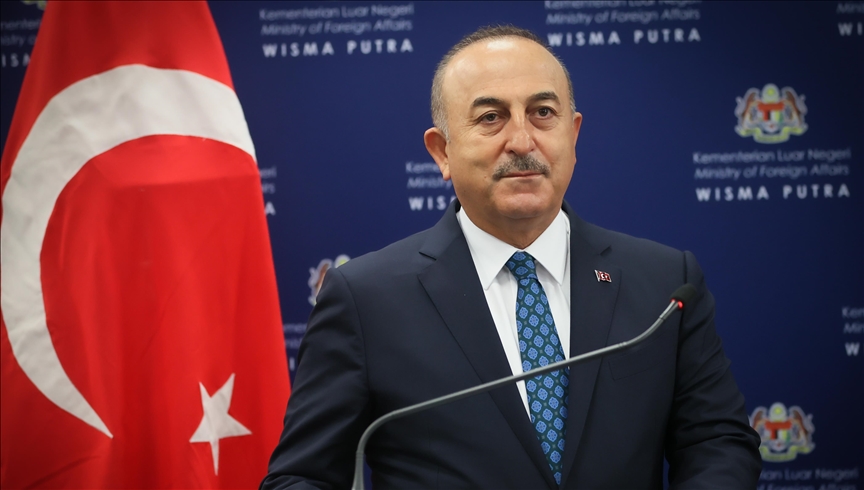ANKARA
With the first ship carrying Ukrainian grain continuing to sail to Lebanon, Türkiye’s foreign minister said Thursday that the grain export deal signed in Istanbul had to be “sustainable” and could be the basis for a “comprehensive cease-fire” to end the war in Ukraine.
“It has to be sustainable, and the duration of this agreement is for four months,” Mevlut Cavusoglu told a joint news conference with his Malaysian counterpart Saifuddin Abdullah in Kuala Lumpur, adding that the grain export deal will be extended if there are no objections made prior to the ending of the agreement.
Türkiye, the UN, Russia, and Ukraine signed a historic deal on July 22 to reopen three Ukrainian ports — Odesa, Chernomorsk, and Yuzhny — for grain that has been stuck for months due to the ongoing Russia-Ukraine war, which is now in its sixth month.
To oversee Ukrainian grain exports, a joint coordination center (JCC) in Istanbul was officially launched on July 27, comprising representatives from Türkiye, the UN, Russia, and Ukraine to enable the safe transport by merchant ships of commercial foodstuffs and fertilizers from the three key Ukrainian Black Sea ports.
Noting that the vessel carrying corn from Ukraine continues to sail towards Lebanon after inspections were done at the JCC, Cavusoglu said if the deal is extended without any objections, then “Russia will also be able to export its own grain and related products as well as fertilizers.”
He emphasized that the entire world needs these goods coming from Ukraine and Russia.
The grain deal “has to be sustainable, and everybody must act responsibly and stand by their commitments to continue this flow. And I have to tell you that the situation is fragile, because the war in Ukraine continues,” Cavusoglu added.
Expressing Türkiye’s hope for the deal to be “the basis for a comprehensive cease-fire, peace plan, and lasting peace” in the region, the Turkish minister further affirmed his country’s continued efforts to end the war in Ukraine and noted the “need to support the international community to end the war.”
On relations with Malaysia, Cavusoglu said the ties between the two countries have been raised to the level of comprehensive strategic partnership as he cited the agreements signed between each governments, companies, and universities.
“And I would like to take this opportunity to thank Malaysia for the continued support on enhancing our institutional relations with ASEAN. Malaysia is a key actor in its region and in the Muslim world,” Cavusoglu said.
Noting that Türkiye looks forward to the visit of Malaysian King Sultan Abdullah, the top Turkish diplomat vowed to intensify parliamentary cooperation and “look forward to the establishment of the parliamentary friendship group by the Malaysian side.”
Regarding trade volume between Türkiye and Malaysia, Cavusoglu said it grew by 60% and reached $2.42 billion in the first half of this year.
“We have a trade volume target of $5 billion, it appears that this target is achievable this year. Obviously, we need to work for a more balanced trade,” he added.
Announcing the completion of negotiations to expand the existing Free Trade Agreement between Türkiye and Malaysia, Cavusoglu said the deal is to be ratified soon.
The Turkish foreign minister further said the two countries will continue cooperation on mutual concerns such as the Rohingya people, situation in Afghanistan, Palestine, regional issues, and the fight against Islamophobia.
“We agreed to increase our humanitarian and assistance to people in Afghanistan,” Cavusoglu said while voicing hopes to expand and deepen Türkiye’s cooperation with Malaysia in the future.
For his part, Malaysian Foreign Minister Abdullah said his country looks forward to “working much closer” so “the relations between the two brotherly countries can be enhanced.”
Malaysian and Turkish officials also agreed on exploring “new potential areas of investment particularly in the area of digital economy, the military, and defense industry.”
“We also discuss issues on food security, especially in the current situation as an effect of what is happening because of the Ukraine conflict,” he added.

